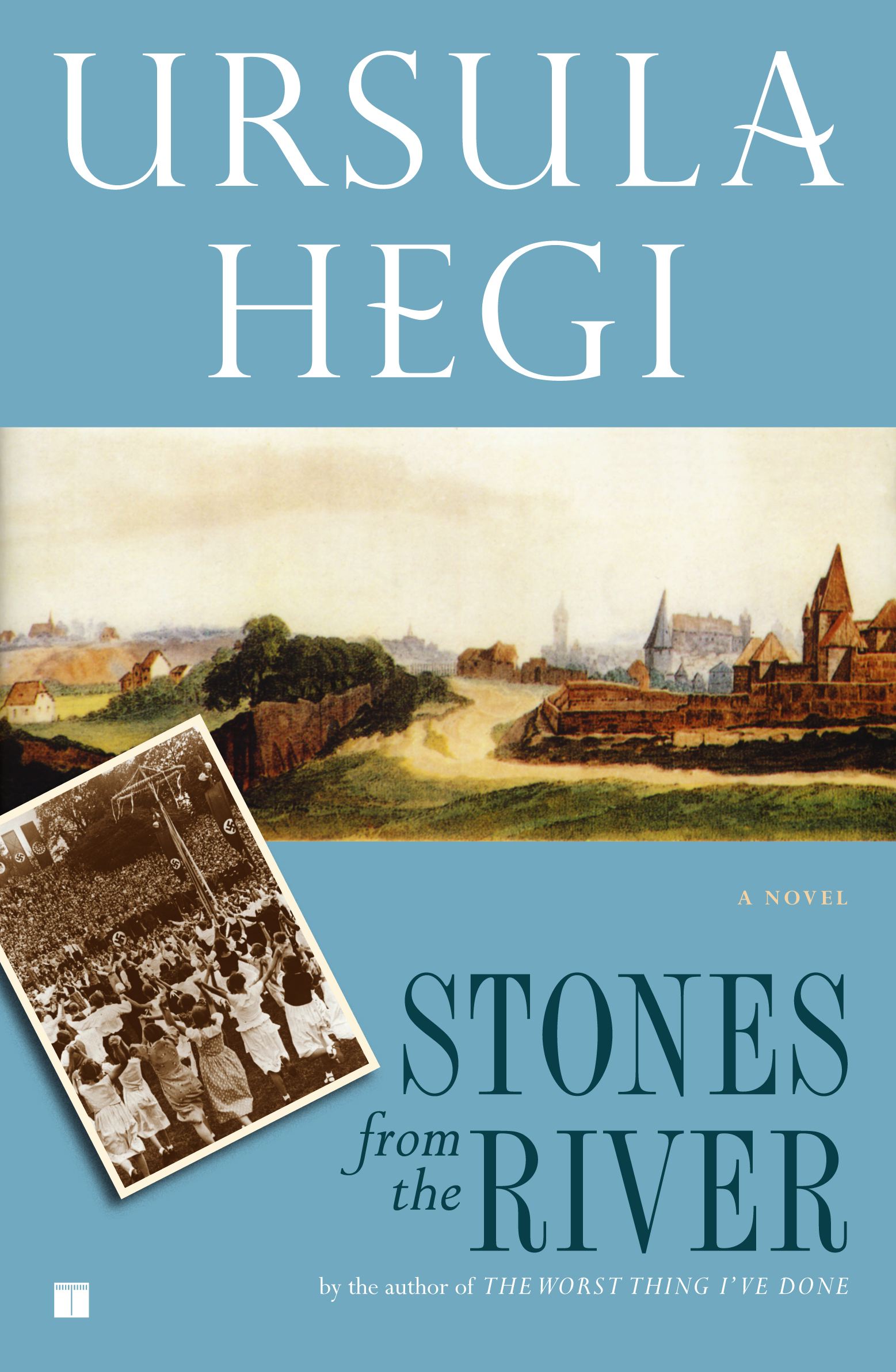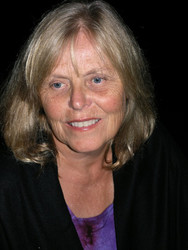Plus, receive recommendations and exclusive offers on all of your favorite books and authors from Simon & Schuster.
Stones from the River
By Ursula Hegi
Table of Contents
About The Book
From the acclaimed author of Floating in My Mother’s Palm and Children and Fire, a stunning story about ordinary people living in extraordinary times—“epic, daring, magnificent, the product of a defining and mesmerizing vision” (Los Angeles Times).
Trudi Montag is a Zwerg—a dwarf—short, undesirable, different, the voice of anyone who has ever tried to fit in. Eventually she learns that being different is a secret that all humans share—from her mother who flees into madness, to her friend Georg whose parents pretend he’s a girl, to the Jews Trudi harbors in her cellar.
Ursula Hegi brings us a timeless and unforgettable story in Trudi and a small town, weaving together a profound tapestry of emotional power, humanity, and truth.
Trudi Montag is a Zwerg—a dwarf—short, undesirable, different, the voice of anyone who has ever tried to fit in. Eventually she learns that being different is a secret that all humans share—from her mother who flees into madness, to her friend Georg whose parents pretend he’s a girl, to the Jews Trudi harbors in her cellar.
Ursula Hegi brings us a timeless and unforgettable story in Trudi and a small town, weaving together a profound tapestry of emotional power, humanity, and truth.
Reading Group Guide
Get a FREE ebook by joining our mailing list today! Plus, receive recommendations for your next Book Club read.
By clicking 'Sign me up' I agree to the Terms of Use and acknowledge the Privacy Policy and Notice of Financial Incentive. Free ebook offer available to NEW US subscribers only. Offer redeemable at Simon & Schuster's ebook fulfillment partner. Must redeem within 90 days. See full terms and conditions and this month's choices.
Reading Group Discussion Points
- Why did Hegi choose a dwarf as her protagonist? How do the other characters respond to Trudi's "otherness"? How do you?
- What compels Trudi to unearth people's secrets? She uses these stories as a means of exchange and a tool for bartering, disclosing some secrets while holding back others, enhancing where she sees fit. What drives her to repeat and embellish the stories she hears? What need in her does it fulfill? Why, in contrast, does Trudi keep her own secrets hidden? How does her desire to possess secrets and her urge to tell stories change as the story progresses?
- Hegi portrays Trudi as a woman capable of both enormous rage and great compassion. The same woman who takes Max Rudnick a note which reads "I have seen you, and I find you too pitiful to consider," risks her life when she hides Jews in her cellar. How does Hegi reconcile these differences in her main character?
- When Trudi is fourteen years old, four schoolboys drag her into a barn and molest her. Trudi is profoundly affected -- in what ways does this immediately change her? How does it continue to shape her in the coming years? Is Trudi ever able to overcome it? How?
- During the war, Trudi risks her life and her father's by hiding Jews in their cellar. How does this forever transform her relationship to people? What impact do her actions have on the town, and how does it change her standing in Burgdorf?
- How does Hegi develop the character of Leo? He is a constant support beam to the townspeople and to Trudi -- how does he tie the story together? How are Leo and Trudi different from each other, and in what ways are they similar?
- As Nazism encroaches on Burgdorf, Hegi's characters are confronted with moral dilemmas that go far beyond their ordinary experience. What are the different ways in which the townspeople react? What reasons does Hegi suggest for their varying emotions and actions? What do you think you might have done differently in their place?
- After Michael Abramowitz is taken away and beaten by Nazis, his wife has a thought that she never voices: "Given a choice, she would rather be the one who was persecuted than the one who did the persecuting." Do you think this is a feeling shared by other Jews during the war? By ordinary Germans? How would you choose?
- We do not learn until late in the story that Emil Hesping is the unknown benefactor. We discover that all the years he has been giving gifts to the people of Burgdorf, he has been embezzling money from the gymnasium. How do you feel when he is killed for removing Hitler's unwelcome statue from the town square? The unknown benefactor symbolically counteracts some of the pain Hitler's tyranny has caused. What is Hegi saying about the relation of good deeds to justice?
- After the war, many of Burgdorf's townspeople refuse to speak of the war years, pretending that they took no part in the war's evils. What compels them to participate in this complicity of silence? What do you believe can happen to a people when they collectively bury a memory? What purpose does it serve to bring out the truth and to never forget it?
- What is the significance of making Trudi and her father the town librarians? Why do you think Hegi uses a library as her novel's principal setting?
- How are Burgdorf's women affected by their country's history? Think of Renate Eberhardt, who is turned in by her Nazi son; Ingrid, the young woman searching for divinity; Jutta, the strong and beautiful wife of Klaus Malteri Hanna, the -- baby Trudi loves too much; Eva Sturm, who was not protected by her husband, Alexander. What pain and atrocities are visited on the women specifically?
- What vision of human nature does Stones from the River express? Does Hegi perceive human beings as fundamentally good, evil, or indifferent? As immutable or capable of transformation?
- In Stones from the River, Hegi uses both stones and the river symbolically. What significance does the phrase "stones from the river" acquire in the course of the novel, both for Trudi and the reader? How does Trudi use the stones as a means of self expression? What does the river mean to Trudi, and how does Hegi develop it as a metaphor?
Product Details
- Publisher: Simon & Schuster (March 1, 1997)
- Length: 528 pages
- ISBN13: 9780684844770
Browse Related Books
Raves and Reviews
Michael Dorris Los Angeles Times What a novel is supposed to be: epic, daring, magnificent, the product of a definging and mesmerizing vision...It is in a word, remarkable.
Suzanne Ruta The New York Times Book Review Rich and lively...This moving, elegiac novel commands our compassion and respect for the wisdom and courage to be found in unlikely places, in unlikely times.
Resources and Downloads
High Resolution Images
- Book Cover Image (jpg): Stones from the River Trade Paperback 9780684844770(1.5 MB)
- Author Photo (jpg): Ursula Hegi Photo Credit: Gordon Gagliano(0.6 MB)
Any use of an author photo must include its respective photo credit























